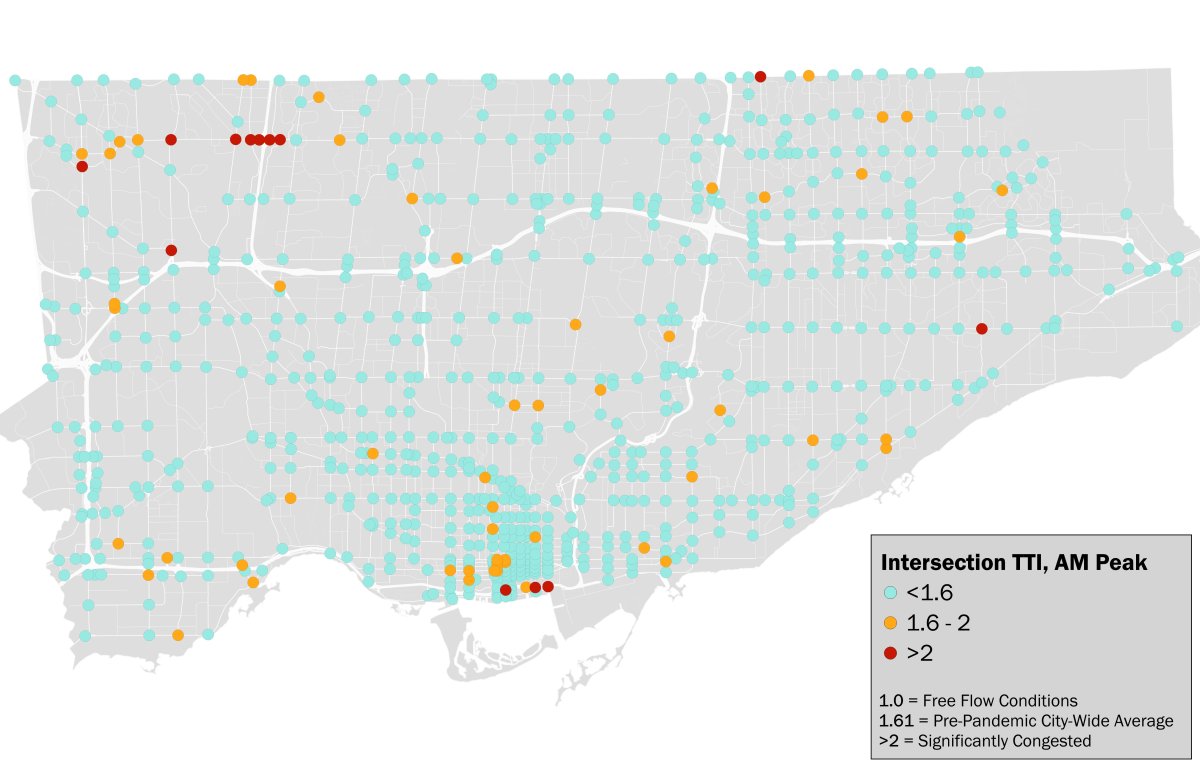The City of Toronto has released its own data on the top 10 busiest, most congested intersections in Toronto for 2022, nearly a week after a traffic analytics company released data ranking Toronto the seventh most congested city globally.

City officials said it measured congestion at intersections with TTI — time travel index — meaning how delayed travel time is during peak a.m. and p.m. time frames compared to the middle-of-the-night when it’s uncongested.
Just last week, traffic analytics company INRIX released a report that ranked Toronto as the seventh most congested city in the world, with drivers losing an average of 118 hours in congestion in 2022. Toronto was ranked number one for congestion in Canada.
A city spokesperson told Global News that their own internal data indicated that traffic volumes in Toronto have returned to pre-pandemic levels. However, the city said several different factors such as infrastructure designs, municipal road work, construction and private development have impacted congestion at each of the intersections.
Here are the top 10 most congested intersections in Toronto:
- Lake Shore Boulevard East and Lower Sherbourne Street
- Finch Avenue West and Norfinch Drive/Oakdale Road
- Finch Avenue West and Highway 400 South Finch WB Ramp
- Finch Avenue West and Highway 400 North Finch EB Ramp
- Finch Avenue West and Signet Drive/Arrow Road
- Lawrence Avenue East and Scarborough Golf Club Road
- Lake Shore Boulevard West and Bay Street
- Steeles Avenue East and Pharmacy Avenue/ Esna Park Drive
- Islington Avenue & Finch Avenue West
- Lake Shore Boulevard East and Parliament Street
“Managing congestion at these intersections and throughout Toronto is a priority for the City as travel demand rises in tandem with population and economic growth,” a city spokesperson said. “Improving how we manage congestion through technology and innovation maximizes efficiency, reliability, and sustainability of our road network.”
- Roadblock cleared: Ontario’s Highway 413 moving forward after governments reach agreement
- TSX down 160 points as energy stocks move lower, U.S. markets continue to fall
- Man accused of stabbing Toronto police officer faces attempted murder charges
- Ford government questions usefulness of fourplex policies citing low uptake






Comments